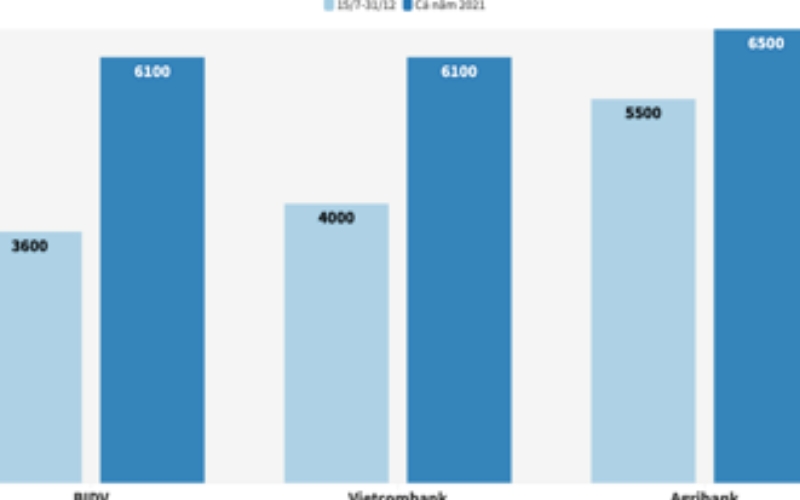Who’s Winning the Battle Traditional, the rise of fintech has sparked a fierce competition with traditional banks. Fintech, short for financial technology, refers to a broad range of innovations that leverage technology to offer financial services. From mobile banking apps and online lending platforms to blockchain and cryptocurrency solutions, fintech companies are reshaping the financial landscape, challenging the dominance of established banks. But as these two sectors grow and evolve, the question remains: Who’s winning the battle between fintech and traditional banks?
This article will explore the dynamics of this competition, examine the strengths and weaknesses of both fintech companies and traditional banks, and analyze the factors that are determining the outcome of this battle.
1. The Rise of Fintech: Disrupting the Financial Industry
Who’s Winning the Battle Traditional an explosion in popularity over the past decade, offering consumers new ways to manage money, access credit, and invest. Fintech companies are using technology to provide faster, cheaper, and more accessible financial services. With the growth of mobile devices, internet penetration, and digital literacy, fintech has become an integral part of the financial ecosystem.
A. Convenience and Accessibility
Who’s Winning the Battle Traditional of fintech is the convenience it offers consumers. Many fintech platforms, including mobile banking apps, digital wallets, and peer-to-peer lending services, allow users to conduct financial transactions at any time and from anywhere. This accessibility has made financial services more inclusive, particularly for individuals who may not have easy access to traditional banking services.
- Mobile-First Approach: Many fintech services are mobile-first, catering to a growing generation of tech-savvy consumers who prefer managing their financial lives through their smartphones. This user-friendly approach contrasts with the traditional banking model, which often requires customers to visit physical branches or navigate complex online banking platforms.
- Financial Inclusion: Fintech has made it possible for people without access to traditional banks—particularly in underserved regions—to access banking, loans, insurance, and other financial services. For example, mobile money services like M-Pesa in Kenya have empowered millions of people in Africa, revolutionizing how they send and receive money.
B. Speed and Efficiency
Fintech platforms are able to provide financial services more quickly and efficiently than traditional banks. For example, applying for a loan or investing in the stock market through a fintech platform often takes minutes, compared to the lengthy and sometimes tedious processes required by banks. Fintech companies are also able to automate many processes, reducing human intervention and the likelihood of errors.
- Instant Payments: Many fintech platforms enable instant payments and transfers, whereas traditional banks often require several days for transactions to be processed, especially for international transfers.
- Loan Approval and Disbursement: Online lending platforms, such as peer-to-peer lending and fintech-backed microfinance companies, can offer loans with minimal paperwork, often approving and disbursing funds within hours or days. In contrast, traditional banks can take weeks to approve a loan due to extensive background checks and paperwork.
C. Innovation in Products and Services
Fintech companies are at the forefront of developing new and innovative financial products. The advent of blockchain technology, for example, has paved the way for decentralized finance (DeFi) solutions, while robo-advisors are disrupting traditional investment strategies. In contrast, traditional banks have been slower to innovate and often remain reliant on outdated infrastructure.
2. The Strengths of Traditional Banks
Despite the disruptive power of fintech, traditional banks continue to hold significant advantages, especially when it comes to trust, stability, and the ability to offer a wide range of services.
A. Established Trust and Reputation
Traditional banks have the advantage of a long-standing reputation for stability and trustworthiness. Many consumers still prefer to bank with established institutions because they feel their money is safer with a bank that is regulated by government authorities and insured by deposit protection schemes. Fintech companies, on the other hand, are often newer and may not yet have earned the same level of trust.
- Regulation and Security: Traditional banks are heavily regulated and must adhere to strict financial rules, ensuring a high level of security and consumer protection. In contrast, while many fintech companies are regulated, some operate in less transparent environments, which can raise concerns over the safety of consumer data and funds.
- Customer Loyalty: Many customers remain loyal to their banks due to longstanding relationships and familiarity. People who have had accounts with the same bank for years may be reluctant to switch to a fintech platform, even if the latter offers more innovative services.
